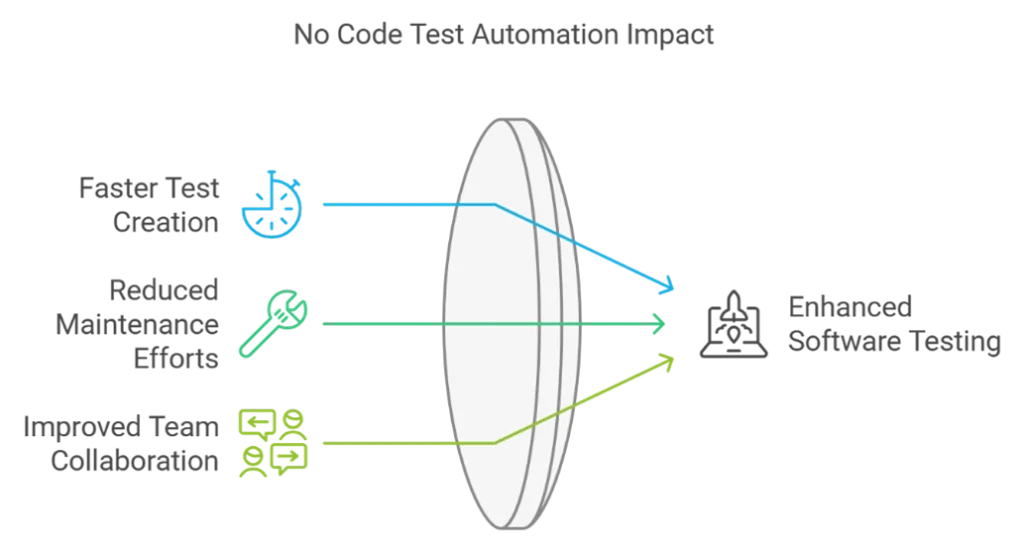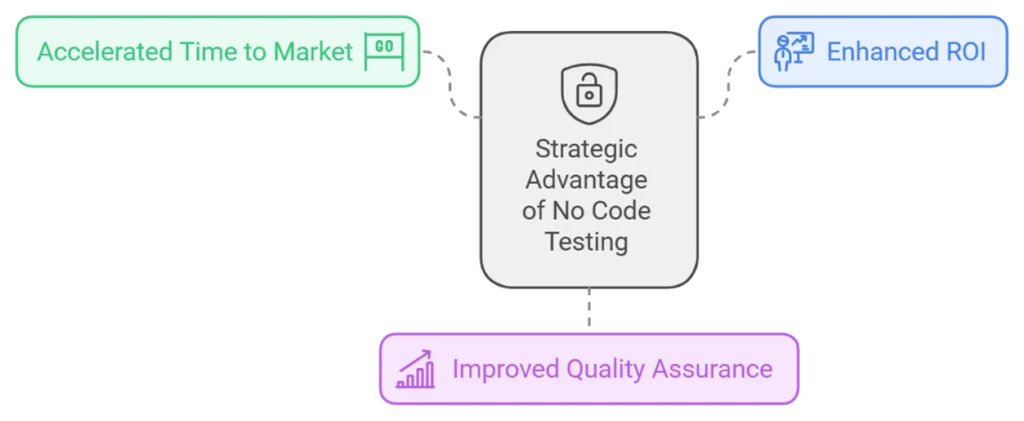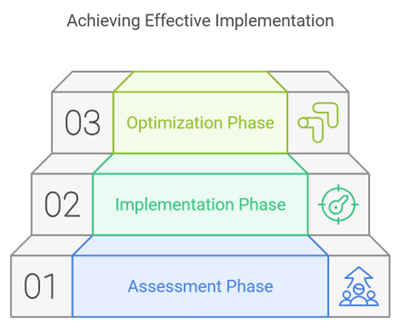The software testing landscape is witnessing a revolutionary transformation with no code test automation emerging as the cornerstone of modern QA practices. According to recent industry reports, organizations implementing no code testing solutions have seen a 60% reduction in testing time and a 40% decrease in overall testing costs.
Understanding No Code Test Automation: A Comprehensive Overview
What Sets No Code Testing Apart?

No code test automation empowers teams to create, execute, and maintain automated tests through visual interfaces, eliminating the traditional coding requirements. This democratization of testing has opened new possibilities for organizations of all sizes.
Key Statistics:
- 78% faster test creation time
- 45% reduction in maintenance efforts
- 65% improved team collaboration
The Strategic Advantage of No Code Testing

1. Accelerated Time to Market
- Instant test case creation
- Zero coding delays
- Rapid deployment capabilities
2. Enhanced ROI
- 50% reduction in training costs
- 40% decrease in resource requirements
- Significant reduction in technical debt
3. Improved Quality Assurance
- Consistent test execution
- Comprehensive coverage
- Real-time reporting
Introducing iTAF: The Future of Test Automation

ideyaLabs innovative Low Code Automation Testing Framework (iTAF) represents the next evolution in no code testing solutions. This cutting-edge platform combines enterprise-grade capabilities with unmatched ease of use.
Revolutionary Features of iTAF:
- AI-powered test creation
- Smart element recognition
- Cross-platform compatibility
- Advanced reporting dashboard
- CI/CD integration
- Cloud-based execution
Industry-Specific Applications

E-commerce
- Automated checkout testing
- Inventory management validation
- Payment gateway testing
Healthcare
- EMR system validation
- Compliance testing
- Patient portal testing
Banking & Finance
- Transaction testing
- Security validation
- Regulatory compliance checks
Implementation Strategy: A Step-by-Step Approach

- Assessment Phase
- Current testing analysis
- Resource evaluation
- ROI calculation
- Implementation Phase
- Tool selection
- Team training
- Pilot project execution
- Optimization Phase
- Performance monitoring
- Continuous improvement
- Scale-up strategy
Expert Tips for Successful Implementation
Best Practices
- Start with high-impact scenarios
- Implement version control
- Regular maintenance schedule
- Team collaboration protocols
Common Pitfalls to Avoid
- Over-automation
- Inadequate planning
- Insufficient training
- Poor maintenance strategy
The Future Landscape of No Code Testing
Emerging Trends
- AI-driven test generation
- Predictive analytics
- IoT device testing
- 5G compatibility testing
Success Story: Real-World Implementation
One of ideyaLabs’ clients, a leading e-commerce platform, achieved:
- 70% reduction in testing time
- 85% improvement in bug detection
- 50% cost savings
using iTAF’s no code testing capabilities.
Making the Transition: Your Action Plan
- Evaluate your current testing process
- Schedule a demo with ideyaLabs
- Create a transition timeline
- Begin with pilot projects
- Scale based on success metrics
Conclusion and Next Steps
No code test automation is not just a trend; it’s the future of quality assurance. With solutions like iTAF from ideyaLabs, organizations can achieve unprecedented testing efficiency and reliability.
Ready to revolutionize your testing process? Contact ideyaLabs today for a personalized demonstration of iTAF.